I have a huge directory with thousand+ files in it
I want to get the files created from 7:30PM to 7:30 AM and vice versa.
I have been using below code to do it but seems its getting slower as files increase. I am running it on Linux.
First I defined get_time function here:
def get_time():
tmp_date = datetime.now()
year = tmp_date.year
month = tmp_date.month
day = tmp_date.day
date_start = datetime(year, month, day, 7,30)
date_end = datetime(year, month, day, 19,30)
shift = "Day Shift"
if (date_start < tmp_date) and (tmp_date > date_end):
date_start = datetime(year, month, day, 19,30)
date_end = datetime(year, month, day, 7,30) + timedelta(1)
shift = "Night Shift"
elif (date_start > tmp_date) and (tmp_date < date_end):
date_start = datetime(year, month, day, 19,30) - timedelta(1)
date_end = datetime(year, month, day, 7,30)
shift = "Night Shift"
return date_start, date_end, shift
and then
def get_qc_success(ROOT_FOLDER):
date_start, date_end, shift = get_time()
files = []
ARCHIVE_FOLDER = os.path.join(ROOT_FOLDER,"LOMS","ARCHIVE")
files = os.listdir(ARCHIVE_FOLDER)
for csv in os.listdir(ARCHIVE_FOLDER):
path = os.path.join(ARCHIVE_FOLDER,csv)
filetime = datetime.fromtimestamp(
os.path.getctime(path))
if (date_start < filetime < date_end):
files.append(csv)
len_success = len(files)
return files, len_success, shift
Is there any other methods to make it even faster ?
